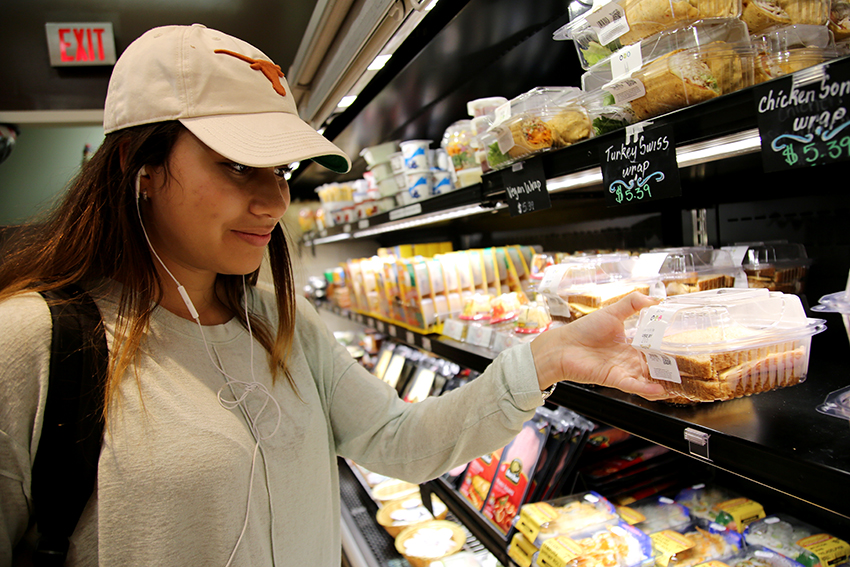Although they look like regular plastic, sandwich containers and parfait cups from DHFS aren’t recyclable — they’re compostable.
The Division of Housing and Food Services has used compostable plastic containers since they started composting in 2010, but representatives said they want to begin by educating and reminding students this semester to reduce contamination and get everything in the right bin.
These compostable plastics are made up of polymer chains, which contain mostly biodegradable components held together by a small amount of non-biodegradable molecules, according to DHFS sustainability coordinator Neil Kaufman. DHFS uses a common type of compostable plastic called PLA, which is made from polylactic acid.
Chemical engineering professor Carlton Willson said compostable plastics are generally made up of a blend of biodegradable and non-biodegradable materials.
“Degradable plastics have been around for a long time, and it’s nothing new for sure,” Willson said. “Generally [they’re made up of] polyolefins, which are not biodegradable, and they often use polyesters, which are biodegradable.”
Kaufman said one benefit of compostable plastics is the reduced risk of contaminating the recycling with leftover food. Food residue on a compostable container is not an issue because the food would go in the compost anyway, he said.
Compostable plastics can also make it easier for guests when they throw away their waste. Kaufman said small items, such as straws and cup lids, cannot be recycled anyway, and making these items compostable means all the waste goes in the same bin.
“What we wanted to do was make things as clear as possible and not have to say, ‘This cup goes in this bin and this straw goes in this bin,’” Kaufman said. “The vast majority of the plastics that we serve in [DHFS] … are compostable.”
An issue with the compostable plastic is that it looks like regular plastic but cannot be recycled, according to DHFS zero waste coordinator Jennifer Hobson.
“You can only compost [these plastics], they are not recyclable,” Hobson said. “The trick about compostable plastics is that they look exactly like regular plastics. All of our plastic goes to a separate plastic recycling facility, so at that facility, that’s where it becomes a problem.”
Hobson said if too many non-recyclable products, such as the compostable plastic, get put into the recycling, the recycling facility will charge a penalty to DHFS. This penalty will occur when the non-recyclable contamination reaches 10 percent.
Chemical engineering senior Kevin Li said having the separate trash cans clearly marked helps students be more aware.
“There’s probably some confusion, but I think a lot of people just go by the picture on each section of the trash can that will tell you what is compostable and what is recyclable,” Li said.
Hobson said that the circular arrows printed on an object don’t mean it’s recyclable, just that it is made of plastic. She said compostable plastics carry the number seven followed by the letters PLA.
“All of the DHFS cups including the straws and the lids, are all compostable, and then all of the clam shells that you see for your wraps and sandwiches, those are all compostable at DHFS,” Hobson said. “Generally, if it’s plastic and it’s printed at DHFS, then it’s compostable.”
This fall, Kaufman said DHFS wanted to reach out more to students, other guests and staff to make sure that there’s no more confusion about where these compostable plastics go.
“It’s not just students, it’s the entire system,” Kaufman said. “But reaching out to students is the groundwork, it’s the front lines of our sustainability efforts.”















